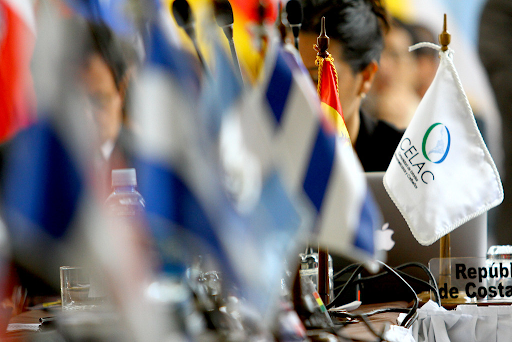A high-profile summit between the European Union and the Community of Latin American and Caribbean States (CELAC) is facing questions about its relevance before it even begins. The two-day meeting in Santa Marta, Colombia, is marked by the high-profile absences of European Commission President Ursula von der Leyen and German Chancellor Friedrich Merz. This low turnout has cast a pall over the event, which aims to strengthen ties at a moment of significant regional tension.
The primary source of this tension is a controversial US military operation. The strikes, aimed at vessels allegedly carrying drugs, have resulted in more than 60 deaths in the Caribbean and Eastern Pacific since September. This operation has drawn the ire of the summit’s host, Colombian President Gustavo Petro, who has repeatedly called the deaths “extrajudicial executions” and confirmed Colombian citizens are among the casualties.
Colombian officials have attempted to manage the narrative surrounding the poor attendance, attributing the scheduling conflicts to a UN climate summit. They are redirecting focus to the leaders who are present, namely Spanish Prime Minister Pedro Sánchez and Brazilian President Luiz Inácio Lula da Silva. Lula’s decision to attend was a late-breaking development, interpreted as a significant gesture of his commitment to regional issues despite Brazil’s upcoming role as host of the COP30 climate talks.
While the official agenda aims for a “Declaration of Santa Marta” on forward-looking topics like renewable energy, financing, and food security, the immediate crisis is expected to hijack discussions. According to Alexander Main of the Center for Economic and Policy Research, the postponement of the Summit of the Americas makes this the last major regional gathering of the year. The fact that the United States is not a participant could empower leaders to speak more openly about the military deployment.
Brazil’s delegation has all but confirmed the explosive nature of the impending talks. Brazilian Ambassador Gisela Padovan stated that addressing US President Donald Trump’s threats against Venezuela and the recent boat strikes would be a “natural topic,” likely to be introduced by the Venezuelan delegation. Lula has also been pushing this line diplomatically, telling reporters he recently advised Trump in Malaysia to help “pacify” Venezuela, not threaten it, and reinforcing that Latin America is a “region of peace.”

